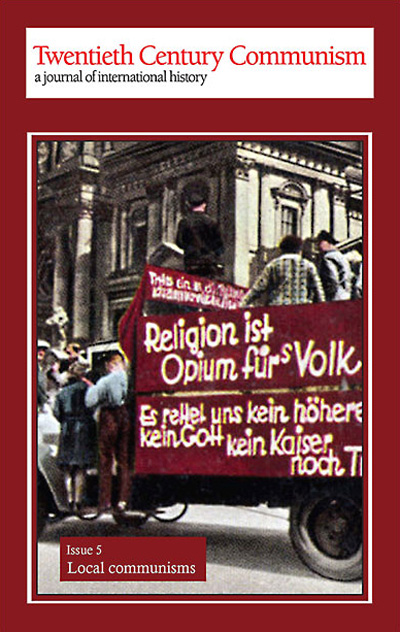
Little Moscows revisited. What we can learn from French and German cases
Twentieth Century Communism - Print ISSN 1758-6437 - Online ISSN 2978-1329
Volume 2013 Number 5
Little Moscows revisited. What we can learn from French and German cases
Ad Knotter
Abstract
In his Little Moscows: Communism and Working-class Militancy in Inter-war Britain (1980) Stuart Macintyre showed that in the interwar years, in some small places in Britain, communists were able to attract a substantial following at a local level. To explain this phenomenon, Macintyre referred to the isolation of these communities, to their strong occupational identity, and to the extraordinary abilities of local communist leaders. Comparisons with examples in Germany and France show that this can be only part of the explanation, however. This kind of local communism arose in small industrial communities, that had recently emerged from agrarian villages, or were constructed as completely new settlements. They had been populated by a wave of migrants, who had formed mono-occupational, pioneer societies. Second generation migrants turned to communism to build occupational communities around the party.
To cite this article
Ad Knotter (2013) Little Moscows revisited. What we can learn from French and German cases, Twentieth Century Communism, 2013(5)
